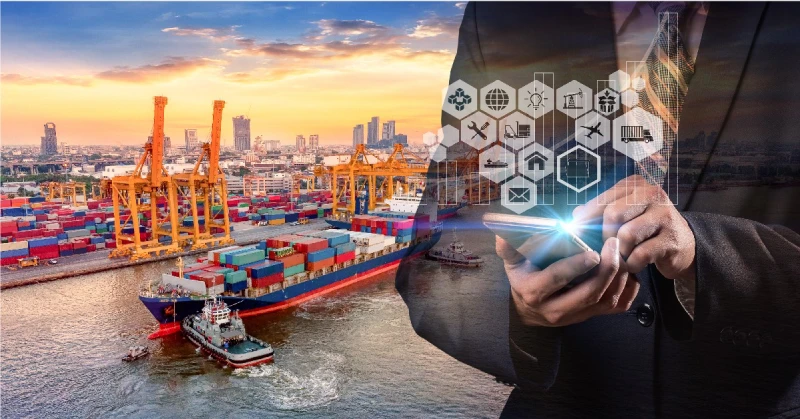In today’s fast-paced global economy, technology plays a crucial role in transforming freight logistics. With the ever-increasing demand for faster, more efficient, and cost-effective transportation solutions, companies in the logistics industry must embrace cutting-edge technologies to stay competitive. From real-time tracking to automation, the role of technology in modern freight logistics is indispensable. In this article, we will explore the various technologies that are revolutionizing freight logistics and discuss how businesses can leverage them to improve their operations.
فهرست مطالب
ToggleThe Impact of Real-Time Tracking
One of the most significant technological advancements in freight logistics is the introduction of real-time tracking systems. This innovation allows businesses to track their shipments from the moment they leave the warehouse to their final destination. By using GPS and RFID technology, logistics providers can offer precise information on the location of goods at any given time. This not only improves transparency but also helps companies manage their inventory and optimize their supply chain more effectively.
Real-time tracking also enhances customer satisfaction by providing accurate delivery windows, reducing the uncertainty that often accompanies international shipments. Moreover, businesses can quickly address any potential issues, such as delays or lost shipments, ensuring smooth and efficient delivery.
Automation in Freight Logistics
Another major development in freight logistics is automation. Automated systems, including robots, drones, and self-driving vehicles, are becoming increasingly common in warehouses and transportation networks. These technologies help reduce human error, increase efficiency, and streamline operations.
For instance, automated warehouses use robotics to handle sorting and packaging, significantly speeding up the process and reducing labor costs. Self-driving trucks are also starting to make an impact, offering the potential for 24/7 operations without the need for rest breaks, thus improving delivery speeds and reducing transportation costs. While there are still regulatory hurdles to overcome, the rise of automation is undoubtedly a game-changer for the freight industry.
Artificial Intelligence (AI) and Machine Learning
Artificial Intelligence (AI) and Machine Learning (ML) are reshaping decision-making processes within freight logistics. These technologies analyze vast amounts of data, enabling logistics providers to predict demand, optimize routes, and forecast delays more accurately. AI-powered algorithms can calculate the most efficient delivery routes based on factors such as traffic, weather conditions, and delivery urgency, helping to reduce fuel consumption and improve overall efficiency.
Machine learning also enhances predictive maintenance for vehicles and equipment, identifying potential issues before they become critical problems. This reduces downtime, increases the lifespan of assets, and lowers maintenance costs for logistics companies.
Blockchain Technology in Freight Logistics
Blockchain technology, initially popularized by cryptocurrency, is now finding its place in freight logistics. By providing a secure and transparent way to record transactions, blockchain ensures that all parties in the supply chain have access to accurate, immutable data. This can help prevent fraud, reduce paperwork, and streamline customs procedures.
Blockchain also simplifies the tracking of goods and payments, ensuring that all stakeholders in the logistics process, from manufacturers to customers, have access to real-time information. This increased transparency builds trust between parties and reduces the risk of disputes.
Internet of Things (IoT) for Smarter Logistics
The Internet of Things (IoT) is another technology that is transforming freight logistics. IoT devices, such as smart sensors, can be embedded in shipping containers and vehicles to monitor the condition of goods throughout the transportation process. For example, temperature-sensitive items like pharmaceuticals or food can be tracked to ensure that they remain within required temperature ranges during transit.
IoT devices also allow logistics companies to monitor vehicle performance and fuel consumption, providing valuable insights that help improve route planning and reduce operating costs. Additionally, IoT can enhance supply chain visibility by providing real-time data on stock levels, inventory, and shipments, enabling businesses to make more informed decisions.
Cloud-Based Logistics Management Systems
Cloud-based logistics management systems are becoming essential for modern freight logistics. These platforms allow logistics companies to store and access data in real time, enabling more efficient coordination between stakeholders across the supply chain. Cloud technology makes it easier to manage shipments, track deliveries, and generate reports from anywhere in the world.
With cloud-based systems, logistics providers can also integrate various technologies, such as IoT, AI, and blockchain, into a seamless platform, further enhancing operational efficiency. This integration allows for better data sharing, communication, and real-time collaboration among all parties involved in the logistics process.
Frequently Asked Questions (FAQ)
- How do modern technologies improve freight logistics? Technologies such as real-time tracking, automation, artificial intelligence (AI), blockchain, and the Internet of Things (IoT) help transportation companies improve efficiency, accuracy, speed, and reduce costs.
- Are autonomous vehicles and robots safe to use in freight logistics? Yes, autonomous vehicles and robots have improved by reducing human errors and increasing productivity. However, there are still legal and infrastructural barriers in some areas that need to be addressed.
- How does real-time tracking enhance the customer experience? Real-time tracking provides accurate updates on the status of shipments at all times. This reduces uncertainty and increases customer satisfaction by ensuring on-time deliveries.
- How can blockchain technology improve logistics processes? Blockchain provides transparency and security in recording transactions and data exchanges. It can help prevent fraud, streamline customs processes, and build trust among supply chain stakeholders.
- What kind of information can IoT track in freight logistics? IoT devices can monitor the condition of goods (e.g., temperature, humidity) during transport, track vehicle status, and fuel consumption, offering comprehensive visibility across the supply chain.
- How do cloud-based systems enhance logistics management? Cloud-based systems allow access to real-time data from anywhere in the world, improving coordination, data sharing, and productivity throughout the supply chain process.
All Videos
Conclusion
As the logistics industry continues to evolve, technology is playing an increasingly important role in enhancing the efficiency, accuracy, and speed of freight operations. From real-time tracking and automation to AI, blockchain, and IoT, these technologies are revolutionizing how goods are transported worldwide. For businesses in the freight logistics sector, staying ahead of technological trends and integrating these innovations into their operations is key to remaining competitive in a rapidly changing market.
Partnering with experienced logistics providers, such as Jahan Tarabar Abrisham, can help you navigate these technological advancements and optimize your global transportation needs. With the right tools and expertise, your business can streamline its logistics processes, reduce costs, and deliver better services to your customers.



